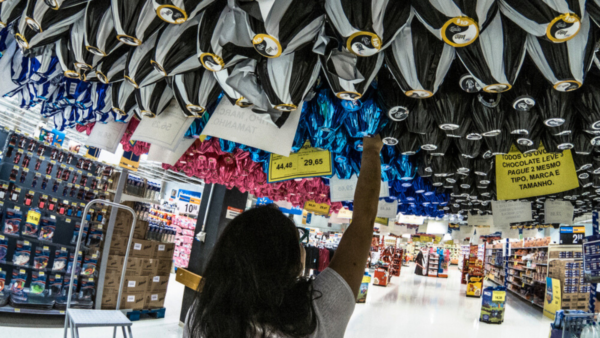Workplace customs can vary considerably from country to country. And when expats come to Brazil, some growing pains are expected. Brazilians are, in general, very welcoming and always willing to help. However, adapting to Brazil’s workplace habits could prove to be more tricky than grabbing a beer with locals.
The professional atmosphere in Brazil is a lot more sensitive than in most European countries, and it could be remarkably easy to cause offense with a poor choice of words. At the same time, Brazilian business talks are usually spoken with more tact, with people generally being less direct and concerned about coming across as pleasant.
In Brazil, interpersonal relationships are very important, and they can even surpass professional relationships. The difficulty for managers—and foreigners—is being able to socialize with colleagues while still upholding the limits a superior should have with his or her team. Being too cold will prevent you from getting closer to your employees, which could lead to doubts about your leadership ability. However, being too close to your team will turn hard decisions into impossible ones.
Here’s some advice to ensure that you are following the rules in the Brazilian business environment.
Learn Portuguese
Brazil’s level of English proficiency is relatively low, according to a ranking by Education First, an international company specialized in language training. On a scale of 0 to 80, Brazilians score 50.66—behind countries such as the Philippines, Dominican Republic, and Vietnam.
Also, only speaking English (or any foreign language, for that matter) will limit the variety of people you’ll be able to communicate with. A study by the World Bank shows that there is a clear connection between individual purchasing power and language proficiency. Not speaking Portuguese broadly means you’ll only be able to speak with wealthy people.
Mind your words in the workplace
Unlike most Western countries, Brazilian people, on the whole, make great efforts to appear friendly. They generally try to avoid conflict and will engage in compromises to find solutions which work for everyone involved. For example, instead of bluntly expressing what they think and becoming involved in a conflict, Brazilians often seek to preserve a relationship by sugarcoating their criticism and using diplomacy. They will do their best not to hurt your feelings, even if it might take more time to voice their opinion.
Brazilians in the workplace also tend to be more sensitive and can be more easily offended than Europeans. Indeed, they speak with much more tact, they are less direct, and often try to be pleasant. Typically, being frank and showing irritation in Brazil will not help you solve a problem. It’s actually the opposite. Even if you’re a demanding person in the workplace, aim for an iron hand in a velvet glove approach. Stay calm and don’t let your irritation show, and “vai dar tudo certo.” Everything will work out.
Here is a list of words and terms you should try to avoid while working in Brazil, plus some ideas for alternative phrases to say instead.
- “Why didn’t you do [something]?” >> “How can I help you do it?”
- “Are you done?” or “Have you finished?” >> “What progress have you made?”
- “Not now” >> “I will be happy to help you later, but I have something to finish first”
- “I don’t like it” >> “Good job! However, we could do […] to make it even better”
Timing and scheduling in Brazil
As you will surely have noticed, Brazil is a giant, crowded place. The São Paulo region alone has over 20 million inhabitants, which is more than some European countries. As a result, Brazilians have a relationship with time and distance that’s a bit different from what most of us are familiar with in our home countries.
Brazilians don’t try to plan everything with precision, as they understand that it just can’t be done. Show patience with your colleagues and friends—you’ll almost definitely be left waiting at some point.
Small talk in the workplace
Brazilian people tend to place importance on the emotional aspect of their relationship. Knowing your colleagues is very important, if not mandatory. Before getting into business with someone, Brazilians will want to know the other person and understand them.
Do not underestimate small talk and discussions, as it might be at this moment that Brazilians make up their minds about you. Don’t be hesitant about going out for a casual coffee or drink with your coworkers. Go ahead and have a drink with your coworkers. At the very least, you’ll get to have some fun.










 Search
Search






































